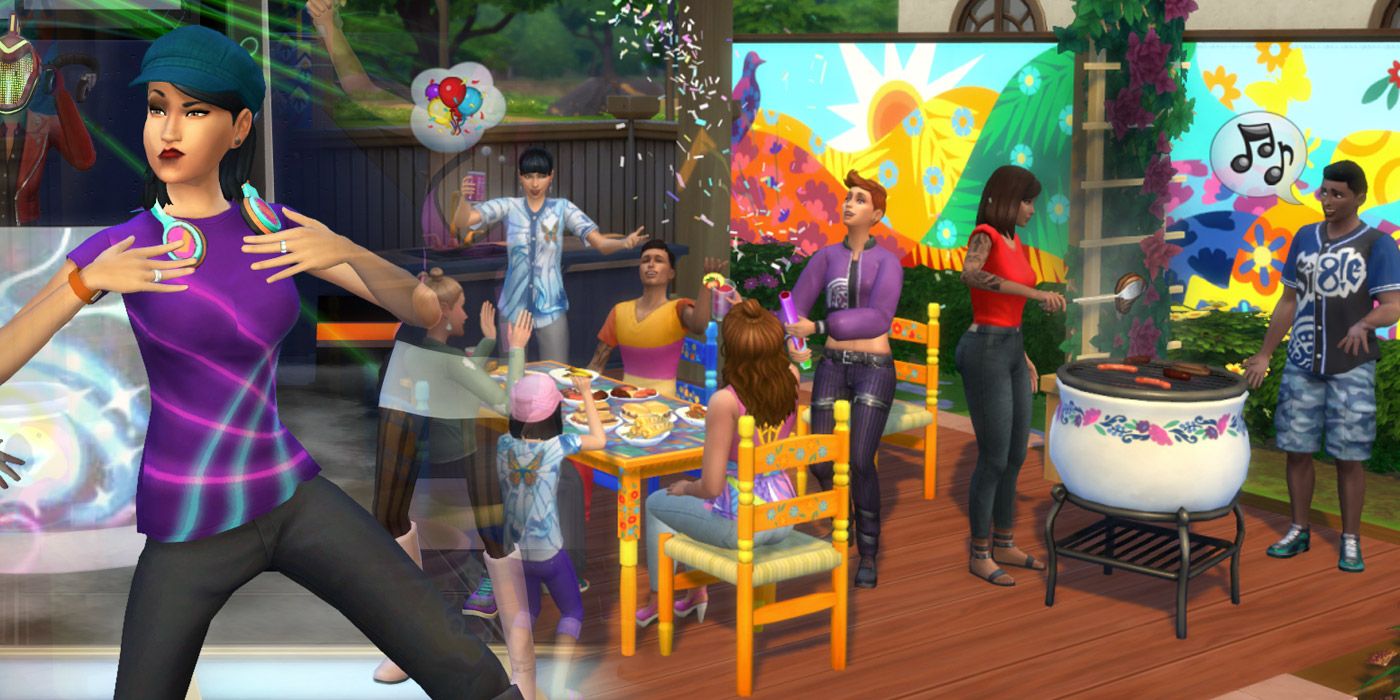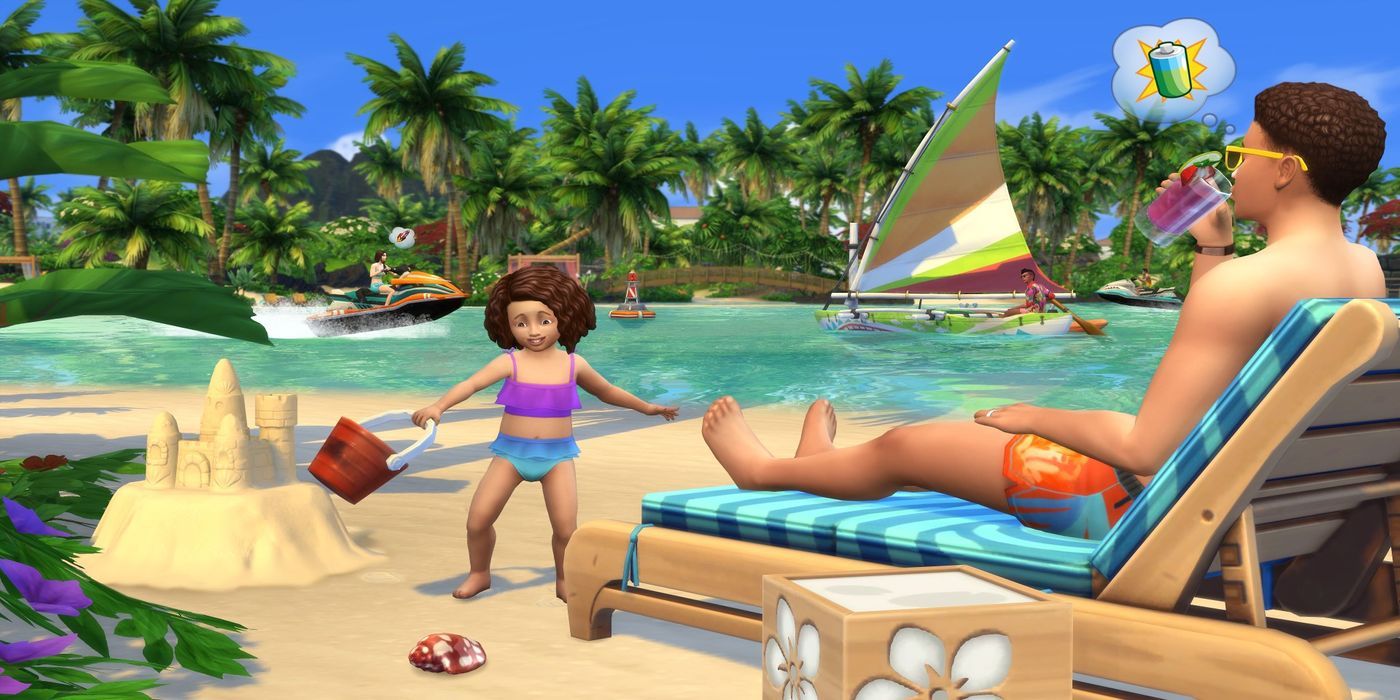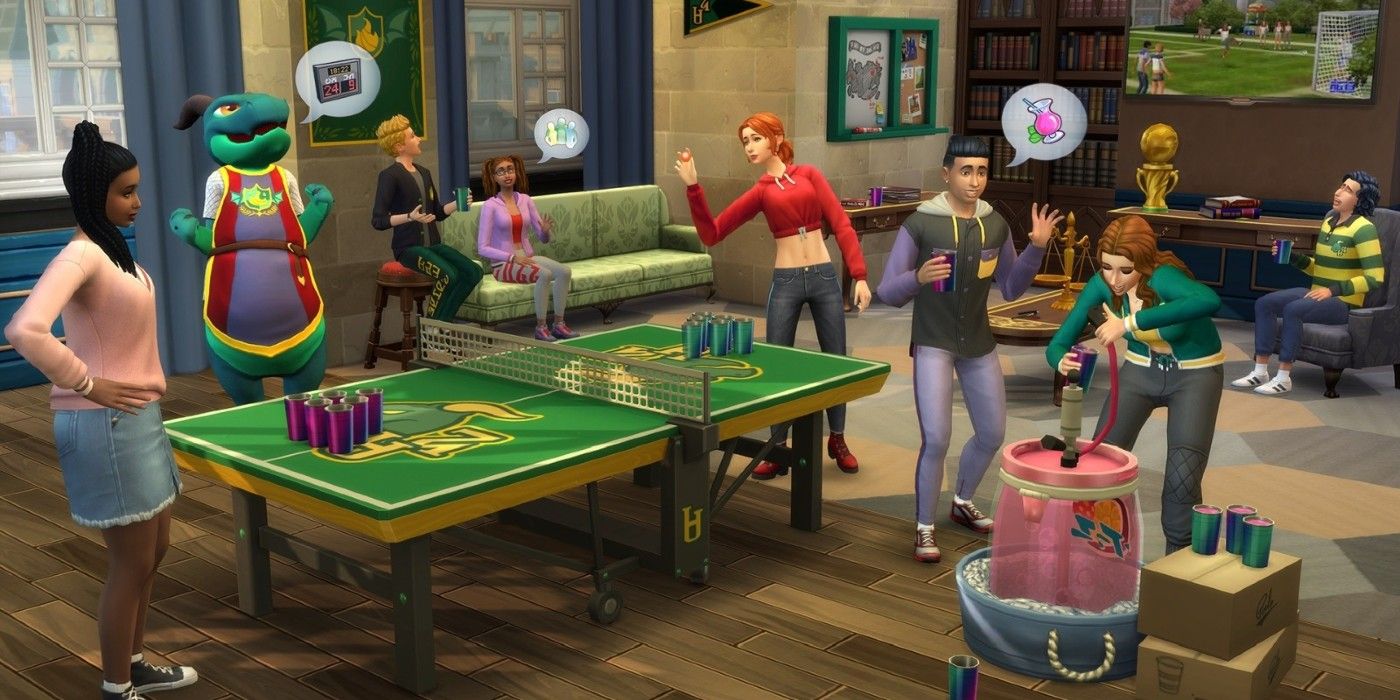Having been around for over 20 years, The Sims franchise has seen the rise and fall of many popular fashion trends, whether it be clothing or certain furniture styles. At the heart of it all, The Sims is supposed to be a life simulator, meaning that players can mimic their lives within the game or recreate others’ lives that they may not have experienced themselves. Its latest iteration, The Sims 4, has finally updated its skin tones, for example, so all players can create accurate depictions of themselves.
Though it took a bit of time for The Sims 4 to update its skin tones from swatches to a color slider, it wasn’t the first time the game took care to include other cultures. Whether it was a base game update or full-fledged expansion pack, the developer has tried its best to incorporate other cultures and practices so all players of The Sims 4 feel included. Adding culturally specific items like this can walk a fine line, though, as it's up to players to make sure they use the items respectfully; otherwise, it could potentially lead to cultural appropriation within the game.
What is Cultural Appropriation?
“Cultural appropriation” is a phrase that generates a lot of buzz in the media, though sometimes it isn’t used in the proper context. Cultural appropriation is when dominant societal groups incorrectly adopt the cultural practices, customs, etc., of another (typically minority) group. This adoption leads to misunderstanding of the culture being appropriated and tends to make a mockery of the culture’s traditional practices, even if that wasn’t the intention.
Explanations of cultural appropriation often circulate on the internet around Halloween because it’s a holiday meant for costumes, and people often need reminders of what is and isn’t an offensive ensemble. Dressing like an Indigenous person and wearing traditional headdresses for Halloween is offensive because it treats one of their cultural practices (wearing headdresses to show status and honor) as a costume rather than an age-old custom.
This is only one example of the larger issue of cultural appropriation as a whole, but offensive “costumes” can also include dressing like a geisha when not of Japanese descent or wearing an oversized sombrero and poncho to dress “like a Mexican.” Geisha are highly regarded in Japanese culture as artists, and only harmful caricatures depict people from Mexico as wearing ponchos and oversized sombreros.
How Could Cultural Appropriation Affect The Sims 4?
The Sims 4 has included a variety of different items to celebrate various cultures in the game. Some came as free base game updates, while others were included in DLC expansion packs. Though players have typically been able to find CC (Custom Content) that adds specific items from their culture into the game, it’s important to have items available from the developer itself because console players cannot use CC.
Once again, it’s crucial that The Sims 4 continues to incorporate other cultures into the game so all players feel seen and represented. However, other players who are not part of that culture walk a fine line with these items being in the game. It potentially creates a mentality of whether or not the player is “allowed” to use different clothing or Build/Buy mode items.
There’s no one hovering over players’ shoulders to prevent them from using items that are not found in their culture, but socially aware players may struggle with what is “right” and “wrong” in this scenario. However, the premise of The Sims is its appeal as a life simulator—the lives players depict don’t have to mimic their own exactly. As long as players are making respectful Sims that represent different cultures (and not harmful caricatures), there’s no reason they should consider culturally specific items “off limits.”
The Sims is about playing with life, and the whole point is experimenting in different ways and creating unique Sims with their own stories and personalities. As it continues to advance, The Sims 4 should absolutely add more culturally specific content to create a well-rounded environment for all players. However, it’s up to players who are not part of that culture to know when they’re honoring the customs and creating Sims to tell that story, or possibly being offensive.
The Sims 4 is available now for PC, PlayStation 4, and Xbox One.



